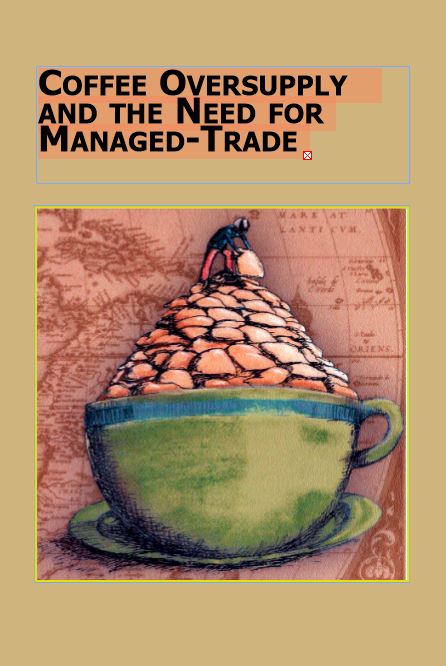This is our backup site. Click here to visit our main site at MellenPress.com
Coffee Oversupply and the Need for Managed-Trade Regimes

| Author: | Acheson-Brown, Daniel G. | |
| Year: | 2003 | |
| Pages: | 304 | |
| ISBN: | 0-7734-6793-9 978-0-7734-6793-4 | |
| Price: | $219.95 | |
This study examines the history of the international coffee trade by looking at how it has been impacted by worldwide supply, conflicts between consumers and producers, international regimes that employ quotas, and the linkage between international security regimes led by hegemonic regional and international powers.
Reviews
“Examining one of the primary commodities sold to the developed countries, Acheson-Brown has carefully crafted a viable explanation regarding the failure of the producing nations to create a control mechanism along the lines of OPEC. Acheson-Brown starts his work with an examination of the various theories that have been suggested to explain international economic cooperation, then turns his attention to the history of coffee. Acheson-Brown has done a marvelous job of placing the political economy of coffee into historical context, paying close attention to the various attempts made to regulate the commodity. Providing a wealth of statistical information, he has demonstrated the continuing futility of the efforts to create a cartel. Clearly written and compellingly argued ... Blending elements of Economics, Political Science, and History, Dan Acheson-Brown has provided a convincing explanation of why coffee-producing nations have failed to create a regime that can guarantee a favorable market for an agricultural commodity developed nations would be hard-pressed to do without.” – Professor Donald C. Elder III, Eastern New Mexico University
“Dan Acheson-Brown proposes a theoretical model of international commodity regime formation, functioning, and decline, then uses the history of the international coffee trade to animate his theory. He shows us very engagingly just how international commodity regimes rise and fall. Students of the global political economy will learn much from this tale.” – Dr. Joyce Frances, Tulane University
“Dan Acheson-Brown proposes a theoretical model of international commodity regime formation, functioning, and decline, then uses the history of the international coffee trade to animate his theory. He shows us very engagingly just how international commodity regimes rise and fall. Students of the global political economy will learn much from this tale.” – Dr. Joyce Frances, Tulane University
Table of Contents
Preface by Leonardo L. Villalón
Introduction
1. Can International Commodity Regimes Work?
2. Theories Relevant to International Commodity Trade
3. When Do International Commodity Regimes Work?
4. The First International Coffee Regime, 1940-1948
5. It Takes a Hegemon to Resurrect a Commodity Regime
6. Change, Collapse, and Renewal of the International Coffee Regime, 1963-1982
7. The Oligopolists Lose Ground
8. The Revised Model in the Neo-liberal Climate
Bibliography
Appendices
Index
Introduction
1. Can International Commodity Regimes Work?
2. Theories Relevant to International Commodity Trade
3. When Do International Commodity Regimes Work?
4. The First International Coffee Regime, 1940-1948
5. It Takes a Hegemon to Resurrect a Commodity Regime
6. Change, Collapse, and Renewal of the International Coffee Regime, 1963-1982
7. The Oligopolists Lose Ground
8. The Revised Model in the Neo-liberal Climate
Bibliography
Appendices
Index
